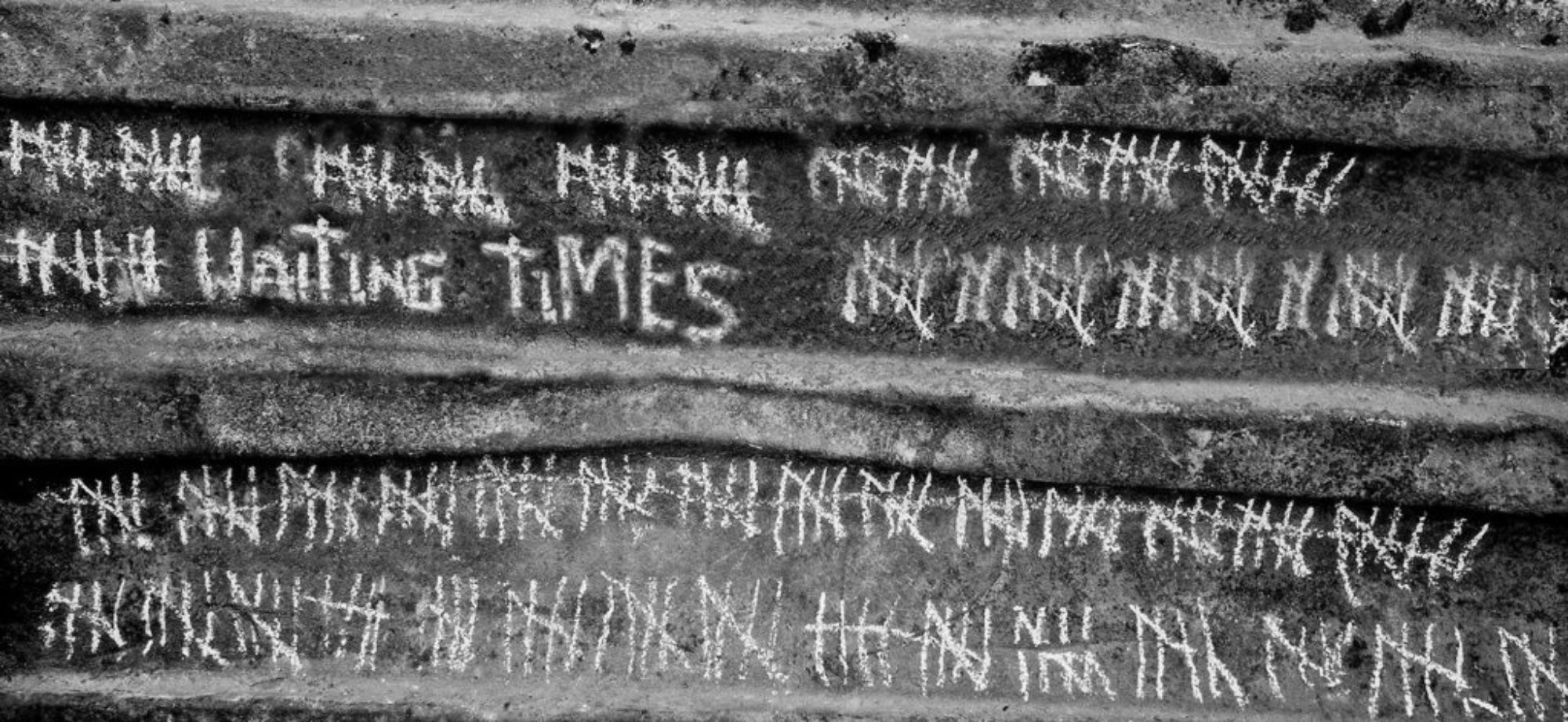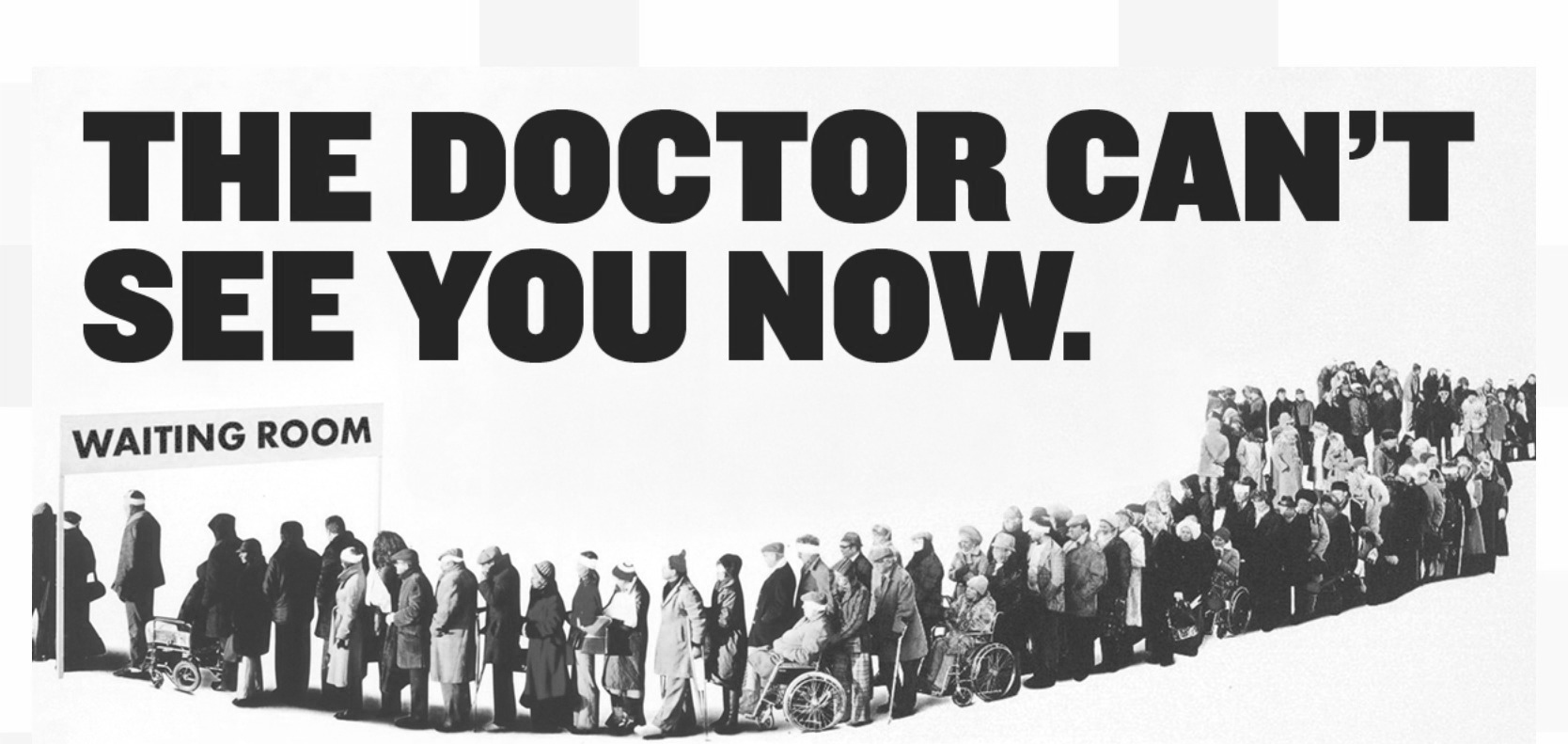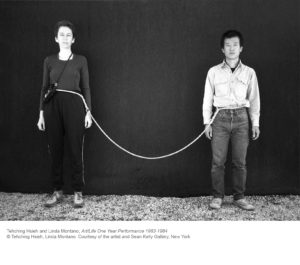Waiting in Late Times explores how temporal experience is represented and managed in a contracted yet ongoing present.
We’ll investigate how particular conceptualisations of waiting – ones that easily become detached from the promise of waiting for – have emerged from specific cultural, intellectual, and sociohistorical conditions of European and US modernity.
We’ll do this under three related work strands.
1. For ‘Waiting in Modern Times (1860-present)’, we will uncover how distinctive forms of waiting that emerge in the nineteenth, twentieth, and twenty-first centuries become entangled with particular European and US experiences and theorisations of modernity. We’ll look at the distended temporalities of literary modernism; writing concerned with waiting and war; phenomenologies and theorisations of extended temporality; and archival materials on shared practices such as queuing, striking, civil disobedience, and the impact of new technologies on daily life. We’ll track how significant aspects of modern and contemporary experience are formed by the uncertain promises of waiting. We’ll situate conceptual accounts of waiting historically, using literary critical methods to explore how temporal representations resist or depart from linear chronologies. This will enrich dominant philosophical accounts of waiting as a form of solitary, existential crisis by using literature, cultural representations, and shared practices to elucidate waiting’s intersubjectivity and dependence – or the possibilities and impossibilities of waiting with others – that are core to experiences in healthcare.
2. ‘Management of Waiting in General Practice (1948-present)’ will analyse how waiting has been politicised and incorporated into healthcare management between 1900 and the present to contextualise how we have come to conceive of waiting in ‘modern’ mass medicine in the UK. By reading policy, economic, and management literatures alongside oral histories, popular literature, newspapers, cartoons, and television and radio programmes, we’ll trace how perceptions of waiting have shifted for patients, doctors, and various publics. We’ll also open up a broader history of ‘managed waiting’, examining how medical professionals, state bodies, and NGOs regulated temporalities to achieve efficient and quality care before ‘Evidence-Based Medicine’.
3. ‘Life Writing, Time, and End of Life Care’ will investigate the recent publishing phenomenon of life writing concerned with end of life temporalities, using literary critical methods to untangle what it means to experience and represent time wrested from its normative structure. We’ll position this genre in relation to discourses of waiting from 1860 to the present, and explore the significance of its emergence within contemporary multicultural and multi-faith societies. We’ll be working in close collaboration with individuals, carers, and healthcare practitioners at Hospiscare.
Check out the work we are doing in relation to these strands.
- Martin Moore, our historian, has developed Hurry Up and Wait project.
- Kelechi Anucha and Michael J Flexer have been telling and sharing stories with participants at Hospiscare day hospice, as the Messages in Bottles project.



